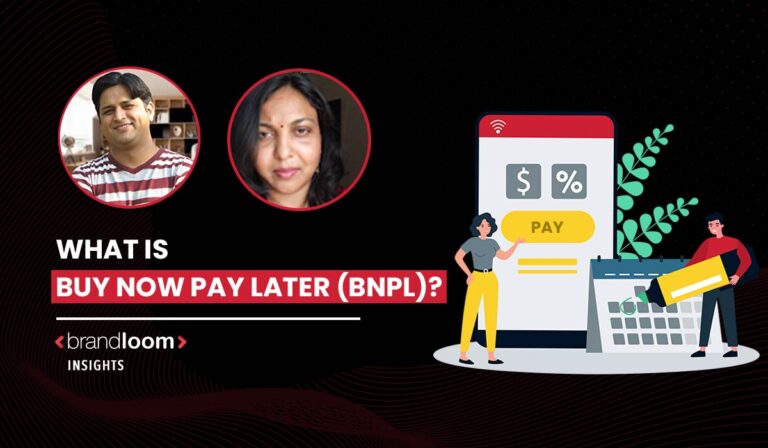The Indian eCommerce industry is rapidly expanding. And in a very short period, we have seen many startup eCommerce companies operating in India. In addition, some of the world’s most well-known multinational corporations have eCommerce operations in India. India is undergoing a digital transformation. Experts predict that the Indian eCommerce market will grow dramatically in the coming months. It is expected to reach US$ 200 billion by 2026.
Hundreds of shopping websites are available, and it can take time to sort through the noise. Some sites cater to everyone, while others are extremely niche – selling only flowers and lingerie. Here is a fairly comprehensive list of the top eCommerce companies in India relevant to you. Any site featured here had to meet one criterion: to sell products our readers would be interested in.
However, before starting with the list of eCommerce companies in India, it is helpful to understand more about what eCommerce companies are about. Understanding these nooks and cracks of eCommerce companies enables you to look at the e-economic market in a better light.
What is ECommerce?
ECommerce which is also known as electronic commerce, is a term that is very often used in sales discussions these days. Product sellers and service providers can easily increase sales and revenue through online business. Selling online is a popular sales method all over the world.
ECommerce refers to the buying and selling of goods and services over the internet. It involves conducting business transactions electronically, without the need for physical presence or traditional brick-and-mortar stores. ECommerce has revolutionized the way businesses operate and has transformed the global marketplace.
According to statistics, global eCommerce sales could reach $6.542 trillion by 2023, accounting for 22% of the total retail market. The bottom line is that people shop online often, and if your products aren’t there, you’re missing out. Due to the pandemic, more people are avoiding physical stores, which has boosted eCommerce growth. As life returns to normal, many physical stores have adjusted their website functionality to make it easier to shop online.
Origination of eCommerce
On August 11, 1994, a man attempted to sell a CD by the band Sting to a friend via his website NetMarket, an American retail platform. This is the first instance of a consumer purchasing a product from a business via the World Wide Web, or “eCommerce,” as it is commonly known today.
Since then, eCommerce has heavily evolved to make products easier to discover and purchase through online retailers and marketplaces. Independent freelancers, small businesses, and large corporations have benefited from eCommerce, allowing them to sell their goods and services on a larger scale than traditional offline retail.
What is an ECommerce Website?
eCommerce websites are digital portals (virtual storefronts) that facilitate eCommerce. Remember that eCommerce is a catch-all term for virtually any internet transaction.
An eCommerce website is any website that has eCommerce functionality and allows customers to buy a product or service. Historically, the first eCommerce transactions were conducted via email and phone calls.
Transform your online business with the best eCommerce website designing company in India. Experience stunning designs, seamless functionality, and increased conversions. Contact us today!
Effective eCommerce websites must be developed to facilitate revenue by increasing the total number of transactions by-
- Maximizing average order value.
- Directing customers to the most profitable products and categories.
- Increasing brand loyalty, repeat customers, and audience engagement.
- Revamping checkout and other critical conversion funnels.
How does ECommerce work?
ECommerce is different from a traditional brick-and-mortar store. There are several steps between the initial contact between you and your customer and the money arriving in your bank account following the final transaction. ECommerce is a massive industry. According to data, global eCommerce sales could exceed $6.5 trillion by 2023, accounting for nearly one-quarter of all retail sales globally.
eCommerce websites are an excellent way to enter retail without investing in physical stores.
Let’s take a closer look at the online store’s various puzzle pieces.
The Foundation of Your Online Store is an ECommerce Website Platform.
Your eCommerce platform, also known as your eCommerce website, is the first point of contact between you and the buyer. This is where you sell your products or services based on your chosen online business model.
Your eCommerce website, also known as an online store, is where your content and technology come together to make everything else work. Using eCommerce marketing, you can attract customers to your eCommerce website. These are some examples:
- Search engine optimization for eCommerce (SEO)
- Influencer marketing
- Content marketing
- Email promotion
- Online Marketing
- Putting your products on online auction sites
- Connecting with your target audience via social media platforms
- Other eCommerce marketing strategies
The good news is that numerous eCommerce platforms and services are available online to help you build your eCommerce website. You don’t need any web design experience to create online stores. You can easily set up your online store with eCommerce solutions such as Shopify, BigCommerce, Wix, and WooCommerce.
If you require more tools and support than the website builders provide, you can hire an eCommerce website development agency to assist you.
Transform your online business with the best eCommerce web design company in India. Experience stunning designs, seamless functionality, and increased conversions. Contact us today!
You may need a business license before starting your eCommerce business, depending on the location of the state you operate from, the type of goods and services that you’ll sell, and the suppliers you’ll work with. People will use your domain name to access your eCommerce website. It should be simple to remember and spell. Many businesses use their company name as the domain name to keep things simple.
Types of eCommerce Businesses
Business to Business (B2B)
B2B is an abbreviation for “business to business.” It is a business model in which companies produce goods and services for other companies and organizations. Software as a service (SaaS), marketing companies, and the kind of businesses that create and sell various supplies are examples of B2B companies.
Businesses and organizations exchange goods and services in the business-to-business model. For example, one company may enter into a contract with another company to supply raw materials to produce a product. Another company may need to buy products from another company in order to stock their shelves. In contrast, other companies may need to hire businesses to promote their products and services, ensure their operations, design the right logo, or write good website content. Consumers aren’t a direct factor influencing in B2B transactions, but they are an important part of why B2B companies collaborate.
Discover the top eCommerce logistics companies in India for seamless delivery and supply chain solutions. Maximize your business potential with trusted partners in eCommerce logistics.
B2B is one of many types of business involved in the supply chain. While B2B businesses sell to other private businesses, public-sector organizations, and charities, B2C (business-to-consumer) or DTC (direct-to-consumer), businesses sell directly to consumers.
Business to Consumer (B2C)
B2C, or business-to-consumer, is a commerce transaction in which businesses directly sell products or services to consumers. Traditionally, this could refer to people shopping for clothes at a mall, eating at a restaurant, or subscribers deciding to get broadband at home. However, more recently, the term B2C refers to online product selling, also known as e-tailing, in which manufacturers or retailers attempt to sell their products to consumers via the Internet.
B2C is one of four types of eCommerce, the others being B2B (business to business), C2B (customer to business), and C2C (customer to consumer or customer to customer). B2C is the most well-known model among the general public. You’ve e-tailed if you’ve ever purchased something online for personal use. E-tailing, also known as virtual storefronts, can sell almost any product. An English inventor, Michael Aldrich coined the term “teleshopping” in 1979 after connecting a television set to a transaction of the processing computer via a telephone line.
Consumer to Consumer (C2C)
C2C is an abbreviation for “consumer to consumer” or “customer to customer”; it is a business model that promotes commerce between private individuals, typically online. C2C companies serve as intermediaries, fostering engagement and assisting consumers in reaching larger audiences.
Whether a C2C platform focuses on the right goods or services, this eCommerce category facilitates people-to-people transactions. We’ll take a look at C2C commerce and explain how it works.
A consumer, not a business, sells goods or services to another consumer in the C2C model. The C2C business model is now commonly associated with eCommerce and online selling platforms such as Craigslist or Etsy. Some C2C platforms, such as OfferUp, prioritize app-based mobile commerce. C2C, on the other hand, can refer to any business that creates a market and a transaction system between consumers. This type of business includes the classified ads section of a newspaper and an in-person auction house.
C2C companies facilitate consumer relationships by locating and connecting buyers and sellers. They are especially beneficial in niche markets. For example, if you’re selling a used phone, you might need to find someone interested in the specific make and model. A C2C marketplace, on the other hand, can assist you in connecting with your target customer and closing the sale.
Customers can use the C2C model to find hard-to-find products and the best price among competing sellers.
Leading Ecommerce Website Development Company in India – Creating exceptional online stores that drive growth and maximize conversions. Trust our expertise for your ecommerce success.
Consumer to Business (C2B)
Businesses benefit from consumers’ willingness to set prices or share their data or marketing to the company in the C2B model. In contrast, consumers benefit from flexibility, direct payment, or free or reduced-price goods and services.
This could involve consumers using social media to co-create ideas, product or service concepts, and solutions with a company. C2B can refer to a company providing consumer insights and consumer-centric solutions to another company as a primary service or value-added offering.
C2B business models easily constitute reverse auctions, in which customers set their price for a product or service they want to buy, and when a consumer offers a business a fee-based opportunity to market the business’s effects on the consumer’s blog.
Food companies, for example, may ask food bloggers to include a product in a recipe and review it for their readers. Free products or direct payment may be used to incentivize YouTube reviews. C2B could also include paid advertisement space on the consumer’s website.
Google Ads and AdSense facilitate this relationship by making it easier for bloggers to get paid for advertisements. Amazon Associates is a service that allows website owners to earn money by linking to a product for sale on Amazon.
Business to Administration (B2A)
Business-to-Administration (B2A) is an eCommerce category that includes all Internet transactions between businesses, government agencies, and public administration.
B2A eCommerce encompasses various services, particularly in social security, employment, and legal documents. It provides an online service for businesses, the public sector, and the government, typically via a website.
Business-to-administration (B2A) or Business-to-Government (B2G) marketing is a subset of business-to-business marketing. B2A (Business to Administration) offers a wide range of services, including: (financial fields, social security, employment, documents, legal records), and many more.
The B2A model allows businesses or manufacturers to sell their services or products to the concerned government agencies by signing a long-term contract. A SaaS company, for example, can sign an agreement with the government to maintain the state’s military-grade web communications portal.
B2A strategies are viable business models for eCommerce SaaS companies and startups that provide government services. B2A services have grown significantly in recent years due to E-government investments.
Consumer to Administration (C2A)
C2A is the eCommerce model where customers use technology to communicate with the government (local government/authorities). The C2A model can be applied to any activity where a consumer uses a public service or communicates with the government or authorities online, through a mobile app, or through a website.
The initiatives taken by the Indian government to deliver public services, or C2A structures, are examples below:
Government services include PAN cards, Aadhar cards, voter identification cards, and IRCTC train ticketing applications.
- Health: National Digital Health Mission, COWIN vaccination portal.
- Tax: paying GST and submitting tax returns online.
- Payment of bills, including water and electricity bills.
- Education: instruction given by government-run institutions, major universities, NPTEL, etc.
When it comes to public health advisories and last-mile outreach for government initiatives, it can also be a useful way to authentically disseminate information to consumers on their handheld devices. When dealing with contagious diseases and widespread lockdowns, telemedicine services become essential. Local and state governments use Cyclone warning SMS alerts in coastal areas to alert local fishermen and residents to evacuate in the event of an impending storm.
Similarly, IFLOWS-Mumbai was created as a flood-warning system using GIS to produce alerts for local government entities and citizens. The most effective application of C2A is the decentralization of governance and the participation of every last person the authorities are supposed to serve. City planning and traffic management may be promising areas for using data to improve service delivery. The C2A mechanism’s untapped potential can be realized by leveraging emerging technologies such as multi-source data aggregation, cloud services, big-data analytics, internet-of-things, and artificial intelligence, which will aid in streamlining public service delivery mechanisms.
Pros of an eCommerce Business
Before the pandemic, there were numerous reasons to start an online retail business; there are even more now. Here are seven of the most important.
It has lower operating expenses than a physical store.
The physical storefront has a high cost of running a retail business. This includes money spent on rent, utilities, and other necessities. When you run an eCommerce store, all of that goes away. There is no need to pay rent. You don’t have to worry about turning the lights or paying to have the lawn mowed or the walkways shoveled.
You can operate without staff 24 hours a day, seven days a week.
The internet has no store hours. It is operational around the clock, as is your eCommerce business. Unlike a physical store that we are so used to, with set hours, your website can accept orders whenever your customers are ready to buy, potentially increasing business. If you use software to automate most of the process rightly, you won’t need to hire a night shift ordering manager.
Your company can grow on the fly.
When running a physical store, there are physical limitations to how many products you can stock – you only have limited shelf space. ECommerce has no constraints; you can add and remove products as you see fit.
You can reach a larger number of customers.
Your company may be based in New York, but you can sell to customers in California if you have an online store. “ECommerce changes the game for small businesses,” said Ben Richmond, Xero’s country manager in the United States. “Whether you live in a big city or a small regional town, eCommerce allows you to live where you want and sell into many markets.”
It’s simple to keep track of your sales and shipments.
Logistics are crucial for eCommerce businesses. Because eCommerce is digital, it is simple to track sales and shipments. The advantage of having this information in real-time is that you can quickly identify and correct any errors.
It collects customer information.
You collect customer information, including addresses and emails, when selling products online. You can also learn more about their purchasing habits. These insights can be used to target loyal customers with promotions and discounts.
It is pandemic-resistant.
While traditional businesses were forced to close due to the pandemic, online businesses were able to remain open. As a result, consumers’ shopping habits have shifted, necessitating every retailer’s establishment of an online store.
Cons of an eCommerce Business
Though eCommerce has many advantages, it has its drawbacks. Here are six things to think about before deciding on an eCommerce venture.
You will only be able to reach some.
Even amidst the pandemic, some consumers do not like shopping online; they prefer to see and touch products before purchasing and are wary of online fraud. According to Oberlo, 2.05 billion people are expected to shop online in 2020, but only about 26% of the world’s 7.8 billion people.
Data and credit card frauds are on the rise.
One of the most serious issues with eCommerce is the possibility of fraud. Identity theft and credit card fraud are commonplace, affecting thousands of consumers yearly. If hackers break into your network and steal sensitive customer information, the consequences could be catastrophic. A cyberattack costs a business $200,000 on average, and 60% fail within six months.
Customers abandon their purchase carts.
Customers can now window shop with little intention of purchasing, thanks to eCommerce. Shopping cart abandonment accounts for a significant portion of online sales.
Doing business online incurs costs.
You may have a different overhead than a physical retailer. However, there are still expenses, such as website hosting and/or eCommerce platform fees, internet service fees, social media marketing, inventory management, and storage and shipping. Like any other business owner, you must consider applicable taxes, business licenses, and regulations.
ECommerce is a competitive industry.
You are one of many people to sell a product or service online. Depending on your industry, you may have competitors selling identical or similar products. Because many consumers shop on price and expect to find good deals online, you may find yourself in a price war.
Customers want free and quick shipping.
Physical retailers are not required to package or ship their products. A retailer on the internet does. Customers have come to expect two-day and free shipping, which you may need help providing.
Top 10 eCommerce Companies in India.
The eCommerce industry is rapidly expanding. Many eCommerce businesses have grown dramatically in a short period of time. To meet the criteria of the best eCommerce companies in India, a sale with service is required. Many factors are contributing to the growth of the eCommerce sector. Because of the lack of time and reasonable pricing, everyone nowadays prefers online shopping. It is the primary driver of the eCommerce industry’s growth. Flipkart Internet Pvt Ltd, Amazon Development Center India Pvt Ltd, Jasper Infotech Pvt Ltd, and others are among the best eCommerce companies. Check out our following list of the top eCommerce companies in India at this industry’s forefront.
1 Amazon: Largest eCommerce Company in India
Amazon.com, Inc. is also known as Amazon is among the top eCommerce companies in the world. Amazon is an American eCommerce and cloud computing company based in Seattle, Washington. By total sales and market capitalization, it is the world’s largest Internet-based retailer. It is one of India’s top ten eCommerce companies.
Amazon’s corporate office is located in Hyderabad in, India. The company sells products including various categories, including clothing, electronic items, software, books, and videos. More than 160 million products in hundreds of varieties are readily and conveniently available to customers on Amazon. Amazon.com actually began as an online bookstore before expanding to sell DVDs, Blu-ray CDs, video downloads/streaming, MP3 downloads/streaming, and other items. The following are some of Amazon.com’s unique website features:
Reviews:
You have the choice to submit a product review. The product reviews posted on amazon.com are helping a lot of people. Amazon product reviews aid customer decisions regarding purchases.
Content Search:
The “Search Inside the Book” feature enables users to conduct keyword searches throughout the entire text of many books in the catalog.
Third-Party Sellers:
Amazon employs third-party sellers as well. Additionally, it runs an affiliate program that allows third parties to include links to Amazon product pages. If the link results in sales, the affiliate is paid.
Key statistics
- MAU ranking for mobile apps: 1
- Mobile app downloads order: 5
- In order of website visits: 1
- Web usage on desktop and mobile devices: 849.8 million.
2 Flipkart Internet Pvt. Ltd. (Walmart): Biggest eCommerce company in India
It ranks among the Top 10 ECommerce websites in India. Binny Bansal and Sachin Bansal established Flipkart Internet Pvt Ltd in 2007. Despite being registered in Singapore, the company is headquartered in Bangalore. Tablets, USBs, and laptop bags are among the items that Flipkart introduced under the brand name “DigiFlip” in its product line. With a variety of product categories, the company dominates the eCommerce market. It has also introduced a number of internal products.
The biggest Indian online retailer is Flipkart, which is based in Bengaluru. Walmart owns the company at the moment. All kinds of products are available, such as books, music, movies, games, consoles, gaming accessories, mobile devices, cameras, etc.
It is one of the largest eCommerce companies in India. Flipkart is a privately hosted eCommerce platform specializing in online retail, fashion eCommerce, mobile phones, etc. After being acquired by Walmart Inc. for $16 billion in 2018, Flipkart is now under Walmart’s ownership. With a 39.5% market share of India’s eCommerce sector, it is Amazon’s biggest rival. The Big Billion Days are well-known when Flipkart offers steep product discounts across all categories. It has a significant online presence and is regarded by many Indian customers and independent vendors as the best eCommerce platform in the Indian market.
- MAU ranking for mobile apps: 2
- Mobile app downloads order: 4
- In order of website visits: 2
- Web usage on desktop and mobile devices: 530.3 million.
3 Nykaa E-Retail Pvt. Ltd.: One of the Top eCommerce Companies in India
Falguni Nayar founded Nykaa in the year 2012. Her previous position at Kotak Mahindra Capital Company was managing director. Mumbai, Maharashtra, is where the company is headquartered. It is a multi-brand beauty retailer with offices in Mumbai that offers cosmetics and wellness items for women. The business is among India’s Top 10 ECommerce firms.
One of the most prosperous new eCommerce businesses in India is Nykaa.com. Mumbai, Maharashtra, serves as the company’s headquarters. India.
The company is well-liked by female customers and a growing pool of queer people and specializes in selling cosmetics and beauty products. Similar to FirstCry, Nykaa started as a purely online store but has since grown to include 76 physical locations all over India. With more than three lakh products from more than 2000 national and international brands, it is a well-known online retailer for cosmetics and beauty products in India. In recent years, Nykaa established itself as India’s first men’s grooming eCommerce business. Later in 2019, the company also acquired 20Dresses.com, a private women’s styling platform.
- MAU ranking for mobile apps: 14
- Mobile app downloads order: 17
- In order of website visits: 19
- Web usage on desktop and mobile devices: 28.7 Million.
4 Think & Learn Pvt. Ltd. (Byjus): One of the Top eCommerce Companies in India
Byju Raveendran and Divya Gokulnath founded Byjus in 2011. Bangalore-based The Byjus is a well-known international provider of educational technology. The business provides educational materials for students in grades 1 through 12. Additionally, it prepares students for international exams like the GRE and GMAT and Indian exams like the IIT-JEE, NEET, CAT, and IAs.
BYJU currently has 500,000 annual paid subscriptions, 40,000 new students each month, and over 10 million downloads. A student from one of the 1700+ cities spends about 40 minutes per day on this app. The company is clear about its goal of making learning simple and enjoyable. With annual renewal rates as high as 90%, this company’s success story is just getting started. Byju has made digital learning so pleasant and simple to understand through visual and 3D techniques that it’s impossible not to appreciate the experience. It is designed to work with each individual’s unique learning style.
While many brands suffered losses during the COVID-19 outbreak, Byju’s increased its user base and revenue significantly. During the pandemic, the Indian edtech company became a decacorn and surpassed a $10.5 billion valuation after receiving $100 million in funding from Silicon Valley investor and analyst Mary Meeker’s Bond Capital. When all schools and colleges closed in March 2020, the company offered free access to its entire app until the end of March. Students could thus attend live classes and watch interactive videos for free for two months. Students in classes 1-3 could study Math and English concepts, while students in classes 4-12 could study Math and Science concepts.
People adore freebies. Our behavior changes when we hear this four-letter word, and the entry barrier disappears. This strategy is also linked to the principle of reciprocity. When someone helps us, we are obligated to repay the favor, according to this principle. So, if students use the app for two months and enjoy the learning process, the likelihood of those students returning and purchasing the subscription increases significantly. This strategy was extremely successful, with the company registering 6 million new students in March and 7.5 million users in April. The edtech company reported a 150% increase in student enrollment due to the free strategy.
In August 2020, the company paid $300 million for WhiteHat Jr, an online coding school. Later, in April 2021, Byju’s paid USD 1 billion for Aakash Educational Services Ltd (AESL), its largest acquisition to date. This collaboration will assist the company in expanding its presence in the test preparation segment. The company did not stop there; in July 2021, it paid $150 million for Toppr, an online learning app.
5 Bookmyshow.com: One of the Top eCommerce Companies in India
In India, BookMyShow India is the most well-known media and entertainment company. It is among the top 10 eCommerce companies in India. In addition to selling fan merchandise, BookMyShow is India’s one-stop online portal to shop for tickets to movies, events, plays, sports, activities, and monuments. Due to its success, BookMyShow has established branches in Indonesia, the United Arab Emirates, Sri Lanka, and the West Indies.
Indian-based Bookmyshow is a media and entertainment company. 1203 people work for Bookmyshow, which generates $54M in revenue. It was established in 2007. Media & entertainment are Bookmyshow’s areas of expertise. Private business Bookmyshow operates. Ashish Hemrajani is the creator of BookMyShow.
After its 2007 launch, BookMyShow raised 224 million USD in 5 funding rounds, and it has since acquired 6 businesses, including Townscript and Eventifier. BookMyShow Revenue Model commands a market share of nearly 90% in the entertainment ticketing market. BookMyShow revenue 2020 is referred to as the king of all, and despite new rivals, it has managed to hold onto the top spot.
The business’s quarterly revenue was $28 million in the most recent fiscal year. Movie tickets accounted for 50% of the total. Live entertainment, which includes sports, stand-up comedy, and other related events, generates $330 million annually. By 2020, the online ticketing market is projected to grow at a CAGR of 20% as the big players continue to buy up smaller rivals in this space. The business has always emphasized promotions, particularly for movie tickets, and encourages payments through BookMyShow wallets; its wallet is the main revenue source, accounting for about 60% of the total revenue.
On top of the ticket price, the company levies a convenience fee. BookMyShow preserves this distinction. The sale of such tickets generates a commission for BookMyShow in terms of non-movie events.
6 MakeMyTrip Ltd.: One of the Top eCommerce Companies in India
MakeMyTrip, an Indian travel agency, is well-known for having a pretty sizable online presence. The company offers a full range of travel services, including booking flights, vacation packages, flight tickets, and hotels. It offers vacation packages to all popular tourist destinations. Deep Kalra established the leading eCommerce business in India in the year 2000. The company has offices in Sydney and New York City and has also given presentations abroad.
More about MakeMyTrip
The brand’s journey began in the US-India travel market, where a wide range of services from goods and services offering the best value was provided, supported by technology and comprehensive customer support. After establishing a reputation for providing trustworthy and transparent services in that market, the brand expanded its operations to India in 2005.
Since then, MakeMyTrip has offered a simple method for booking travel online and quick access to services with just a few clicks. The brand has gradually introduced a wide range of diversified online and offline services and products for its customers. Technology advancements in its services allow MakeMyTrip to maintain its top spot as an online travel agency in India and adapt its offerings to the market’s constantly shifting needs.
MakeMyTrip uses a B2C (business-to-customer) business model, making it easy for customers to book tickets online and take advantage of the company’s extensive selection of goods and services with just one mouse click. It very easily makes our top eCommerce companies list. They also provide a variety of vacation packages so that their customers can save valuable time when organizing their vacations.
Along with the B2C business model, MakeMyTrip also introduced the MyBiz model to expand its corporate travel services. Using features of MyBiz like a single dashboard system, central payment processing through MyBiz wallet, and quick refund capability to MyBiz wallet on booking cancellations, among others, businesses can manage their employees’ travel plans and lodging options.
In 2005, $10 million was raised for MakeMyTrip’s first series of funding. Following that, in 2006, the business raised $13 million in the subsequent round of funding. A further $15 million worth of funding was generated in 2007. In its 2016 initial public offering, the company raised $180 million. Another IPO raised $330 million in 2017. In 5 rounds, the company raised $548 million in funding.
7 Myntra Designs Pvt. Ltd.: One of the Top eCommerce Companies in India
Myntra easily makes it to our list of ECommerce websites in India. Mukesh Bansal founded Myntra. It is a leading online fashion brand with items for men and women in every price range. The company’s headquarters are in Bengaluru, in the state of Karnataka. It was first made available in 2009. Rapid success has been achieved. The company was founded in 2007 to sell custom and personalized gifts.
Online retailer Myntra carries a variety of fashion labels, including Mango, H&M, and Vero Moda. Myntra is renowned for investing in technology such as the metaverse, live commerce, and artificial intelligence to keep it ahead of the curve in eCommerce. In 2018, Myntra was acquired by Flipkart, making it indirectly a Walmart subsidiary. It has also been attempting to expand its clothing brands in the Middle East, like HRX and Moda Rapido. Myntra Jabong employs 4978 people and generates $62M in revenue. In 2007, it was founded. Online shopping is a specialty of Myntra Jabong.
Myntra was founded in 2007 and has since acquired 83 businesses, including Jabong, Blink, and 20Dresses, for 342 million USD in 11 funding rounds.
With more than 2000 of the top fashion brands in the world available on its platform, Myntra has emerged as India’s leading authority on fashion. Every day, they sell more than 200,000 items through the app, and in the fiscal years 2015–2016, they generated about $500 million in gross merchandise volume. The company’s January 2016 Gross Merchandise Volume (GMV) was $800 million, just $80 million shy of its FY16 target of $1 billion.
- MAU ranking for mobile apps: 4
- Mobile app downloads order: 8
- In order of website visits: 4
- Web usage on desktop and mobile devices: 141.5 Million.
8 One97 Communications (Paytm): One of the Top eCommerce Companies in India
Paytm is one of India’s largest fintech startups, founded in August 2010 by none other than Vijay Shekhar Sharma. The startup provides flexible installments, an e-wallet, and business stages. Paytm began as an energizing stage in 2010 but has since evolved into a commercial center and a virtual bank model. It is also a pioneer of the cashback strategy.
It is easily one of the top 10 eCommerce companies that operate in India. Paytm has evolved into an Indian behemoth, managing versatile installments, banking administrations, a commercial center, Paytm gold, energize and charge installments, Paytm wallet, and numerous other services for over 100 million registered clients. Paytm is available in 11 Indian dialects and serves India, Canada, and Japan. It offers online use cases such as mobile energizes, service charge installments, travel, motion pictures, and occasion appointments. The Paytm QR code can access in-store installments at markets, leafy foods shops, cafés, stopping, tolls, drug stores, and educational establishments.
The organization based in Delhi, NCR, attributed this development to Paytm’s increasing uptake across various usage cases, including retail installments, expenses, utility installments, travel booking, excitement, and games. It recently launched a membership-based rewards program (Paytm First) to support growth while boosting client retention. It enables users to process automatic payments using their preferred payment method, including credit and debit cards, net banking, Paytm wallet, and UPI (bound together installment interface). In 2017, Paytm launched its very own installments bank.
The flexible Paytm Payments Bank has no base equalization requirements and charges nothing for any online transaction (including IMPS, NEFT, and RTGS). The bank currently offers a 4% annual loan cost for investment accounts. Paytm, a computerized installments company, stated that it hopes to significantly increase its exchange volume by part of the agreement from 5.5 billion in 2018–19 to 12 billion.
9 Snapdeal: One of the Top eCommerce Companies in India
Snapdeal billed as India’s largest online marketplace, offers a diverse selection of over 15 million products for quick delivery across the country. Founded in 2010, aims to build the country’s most trustworthy and frictionless eCommerce ecosystem, creating life-changing experiences for sellers and buyers. It has over 15 million products divided into 750+ categories from over 125,000 regional, national, and international brands and retailers.
As the popularity of online shopping has grown, eCommerce websites such as Snapdeal have become household names. A few factors that have assisted Snapdeal in its ascent up the eCommerce ecosystem’s ladder include lightning deals, quick shipping to even the most remote regions of the nation, and exclusive offers and discounts that make products available to its customers at never-before prices.
Snapdeal’s parent company, Jasper Infotech Private Limited, is in Delhi. It operates the eCommerce marketplace Snapdeal.com. Jasper is a holding company. The company’s subsidiaries provide marketing and eCommerce services such as discount vouchers for restaurants, movies, shopping, health packages, lifestyle products, travel, and entertainment.
The massive eCommerce market was lastly valued at $9.09 trillion in 2019 and is easily expected to grow at a CAGR of 14.7% between 2020 and 2027. The Indian market is not far away either. This Indian eCommerce company was valued at around $22 billion in 2018 and is expected to reach $200 billion by 2027, growing exponentially.
More about Snapdeal
Kunal is Snapdeal’s Co-Founder and CEO. Bahl attended the University of Pennsylvania, earning a degree in Systems Engineering. He was also a Wharton School graduate, where he studied Marketing and Operations Strategy. Snap deal’s co-founder is Rohit Bansal. Bansal holds a BTech and an MTech in Computer Science from IIT Delhi, where he also co-founded Snapdeal with Kunal. Titan Capital also has Rohit Bansal as an investor. Bansal is well-known for his exceptional abilities in Team Management and Business Development.
Snapdeal operates a digital B2C (business-to-customer) marketplace that allows third-party sellers to sell their products directly to customers via the website. The firm follows a portfolio business model. Snapdeal’s core business model is one of matchmaking, in which it connects online sellers with online buyers. To encourage businesses to use its matchmaking platform, it also provides complementary products such as delivery and logistical support. Snapdeal has altered its business model. As of July 21, 2021, this eCommerce company in India has flipped its business model and begun to target value-conscious audiences. The company will no longer sell high-end brands but will instead target audiences who believe in getting good value from a wide range of low-cost products.
Snapdeal reported revenue of INR 925.3 crore in FY19, which fell to INR 916.6 crore in FY20. Snapdeal’s total income fell again during FY21, with the company recording INR 510.2 crore in revenue at the end of the fiscal year, representing a 44.3% drop.
Snapdeal’s total expenditure in FY21 was INR 626.3 crore, a 47.4% decrease from INR 1,211 crore in FY20. Snap deal’s losses shrank to INR 125.4 crore in FY21 after increasing by 47% from INR 186 crore in FY19 to INR 273.5 crore in FY20.
10 Indiamart: One of the Top eCommerce Companies in India
When Dinesh Agarwal and Brijesh Agrawal founded IndiaMART in 1996, the internet was not yet a household term in India. The IndiaMART founders could see the revolution that better internet connectivity would bring to India. With a capital of only Rs 40,000, IndiaMART has grown to become India’s largest and the world’s second-largest B2B eCommerce marketplace.
So, let’s take a look at the startup journey of this 25-year-old company that makes eCommerce easy for many individuals, SMEs, and large companies. Learn about its Business and Revenue Model, Founders and Team, Funding and Investors, Challenges, Competitors, Name, Tagline, Logo, Awards, Acquisitions, and more.
IndiaMART is a leading B2B eCommerce company that connects suppliers and buyers in India. It has a 60% market share in B2B eCommerce and collaborations with leading brands such as Tata, Airtel, Hyundai, Bosch, Canon, and many more. It trades almost everything, from clothing to home furnishings to electronics and construction equipment. With 24 years of experience and enhanced trust, the company provides business visibility and credibility to its buyers and sellers.
IndiaMART, the oldest B2B eCommerce marketplace, operates on a subscription-based model for suppliers. While IndiaMART is free for buyers, its main source of revenue is subscription fees from sellers, sales of requests for quotes’ from buyers, and payment facilitation services it provides. Furthermore, by allowing individuals and businesses to post advertisements on the IndiaMART app, IndiaMART earns advertising revenue.
More about IndiaMart
The company has over 143 million registered buyers and 6.4 million+ suppliers. IndiaMart has a massive collection of over 71 million products and services. It controls a whopping 60% of India’s online B2B Classified space. In the December quarter of 2021, the B2B behemoth received 259 million or more hits on its website and app. IndiaMART opened 52 offices in 52 weeks, increasing its sales 10X in a single year.
IndiaMart has implemented a weekly salary pay disbursement system in order to provide its employees with a flexible and supportive working environment. Weekly employee payouts have been studied and identified as one of the most essential and important factors influencing an employee in many countries, such as New Zealand, the United States, Hong Kong, Australia, and others, with positive results.
IndiaMART reported revenue of Rs 707 crore in the fiscal year 2019-2020, up from Rs 507 crore in the fiscal year 2018-2019. IndiaMart reported a total profit of Rs 147 crore in the fiscal year 2019-2020, up from Rs 20 crore in the fiscal year 2018-2019. In FY 2018-2019, the company collected Rs 671 crore from customers, which increased by 10% to Rs 738 crore in FY 2019-2020. Due to the COVID-19 pandemic, IndiaMART CEO Dinesh Agarwal stated that it would be difficult to maintain the same assets in FY21. However, the company held its growth and posted total revenue of Rs 756 crore in FY21, a 7% year-on-year (YoY) increase from Rs 707 crore in FY20. IndiaMart’s EBITDA increased by 94% year on year, from Rs 169 crore in FY20 to Rs 328 crore in FY21








Comments are closed.